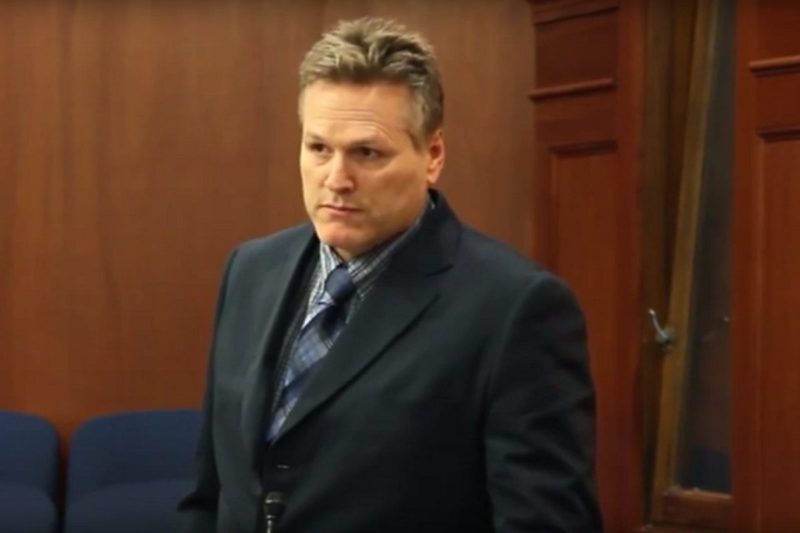Alaska Republican’s Campaign Against Sex Ed Reaches ‘Peak Desperation’
Gonorrhea and chlamydia rates have surged in the state. Alaska reported 808 cases of chlamydia per 100,000 people in 2011—the nation’s highest rate, according to the Centers for Disease Control and Prevention.

Alaska state Sen. Mike Dunleavy (R-Wasilla) practically pulled an all-nighter this week to write legislation designed to dismantle school sexual health education in a state with the nation’s highest chlamydia rate.
No friend to sexual health curricula, Dunleavy crafted his newest measure one day after his bill to restrict sex education in Alaska schools, SB 89, met defeat in the House Health and Social Services Committee. The measure would have prohibited Planned Parenthood and other abortion providers from teaching sexual health courses in Alaska schools.
The committee rejected it 5 to 2 amid public outcry from parents and the state union representing 13,000 teachers.
Then on Wednesday, Dunleavy introduced an amendment to an education bill that, in essence, bars anyone who isn’t a certificated teacher from providing sexual health instruction in schools.
Dunleavy on Wednesday told the Senate Education Committee, which he chairs, that he “stayed up most of last night” to craft the newest attempt to gut sex education.
Dunleavy’s amendment requires the school board to vet and approve sex education curricula and allows parents to review the lessons. It includes language barring anyone who isn’t a teacher in the school where the instruction takes place from teaching about sexual health.
The provision has the effect of banning nearly all doctors, public health nurses, pharmacists, teenage peer educators, and Planned Parenthood instructors from teaching.
The bill, with Dunleavy’s amendment, now heads to the Senate Finance Committee.
Dunleavy has long targeted Planned Parenthood, the state’s largest nonprofit provider of sexual health education. The state senator insists that teachers are best equipped to offer sexual health instruction in a state where advocates say evidence-based health education is sorely needed.
“We’ve been clear that sex education should be taught, reproduction education should be taught and the new concept that I think a lot of us are learning about—sexuality—probably should also be touched upon,” Dunleavy told the Alaska Senate Education Committee on Wednesday, as the Juneau Empire reported. “Sex education is the biology. Sexuality is now the new view of sex. I think we’ve got to be very careful, very careful that we have the right people in there.”
Gonorrhea and chlamydia rates have surged in the state. Alaska reported 808 cases of chlamydia per 100,000 people in 2011—the nation’s highest rate, according to the Centers for Disease Control and Prevention’s Surveillance Survey for that year.
Alaska’s teen pregnancy rate is also higher than the national average.
Explaining his rationale for SB 89 on the Senate floor in February, Dunleavy said, “Most parents don’t send their kids to school to be trained by abortion providers. They don’t want their children indoctrinated in public schools, and that’s what’s happening. This is a process of indoctrination.”
“Mike Dunleavy has reached peak desperation, staying up all night to come up with his worst idea yet,” Jessica Cler, Alaska public affairs manager for Planned Parenthood Votes Northwest and Hawaii, said Thursday in an emailed statement. “Make no mistake: this amendment may be a different method from SB 89, but it has the same result of barring Planned Parenthood’s sexual health educators from Alaska schools and making it harder for youth to access the information they need.”
Dunleavy recently inserted language in another bill, SB 191, to penalize teachers who use sexual health materials from abortion care providers. The legislation is awaiting committee action.
A 2014 study in the Journal of School Health, which examined Massachusetts’ Planned Parenthood sex education programs, showed that 16 percent fewer boys and 15 percent fewer girls had sex between the sixth and eighth grades in schools that taught the programs, compared to students in schools without them.
